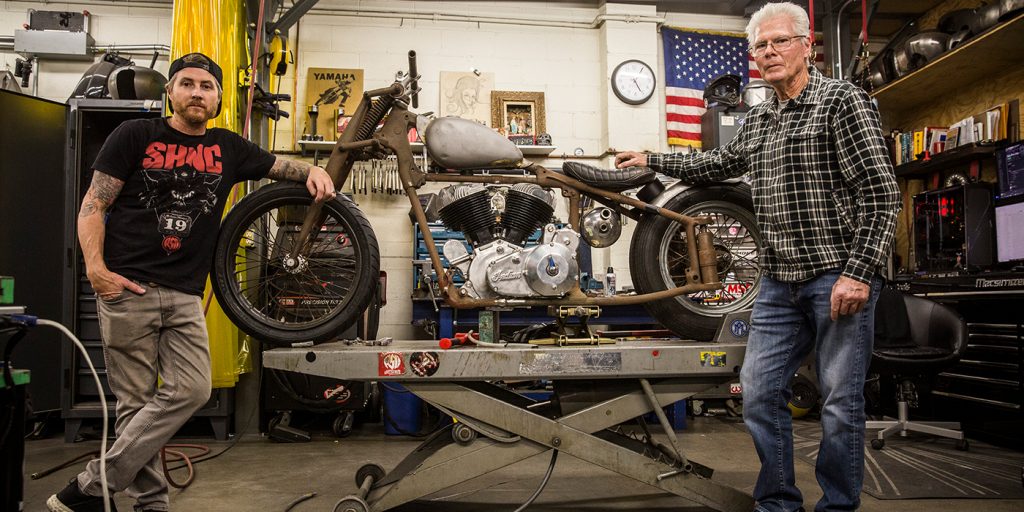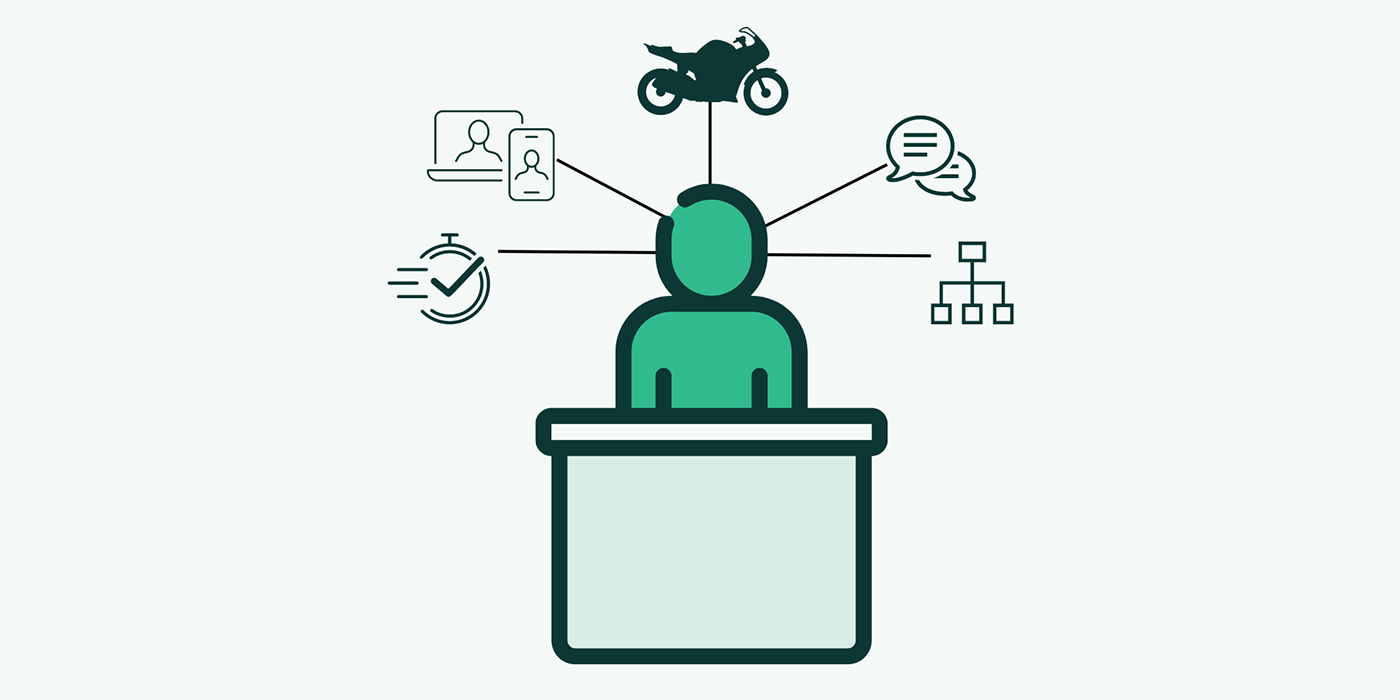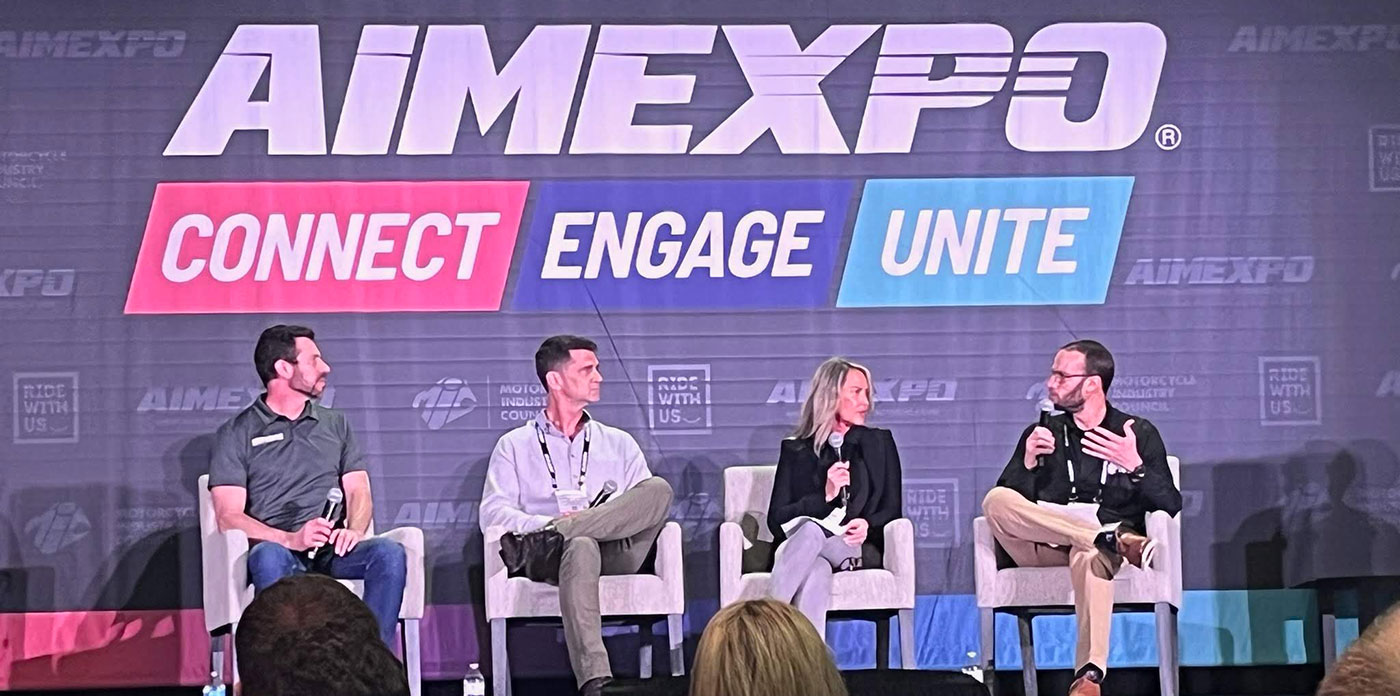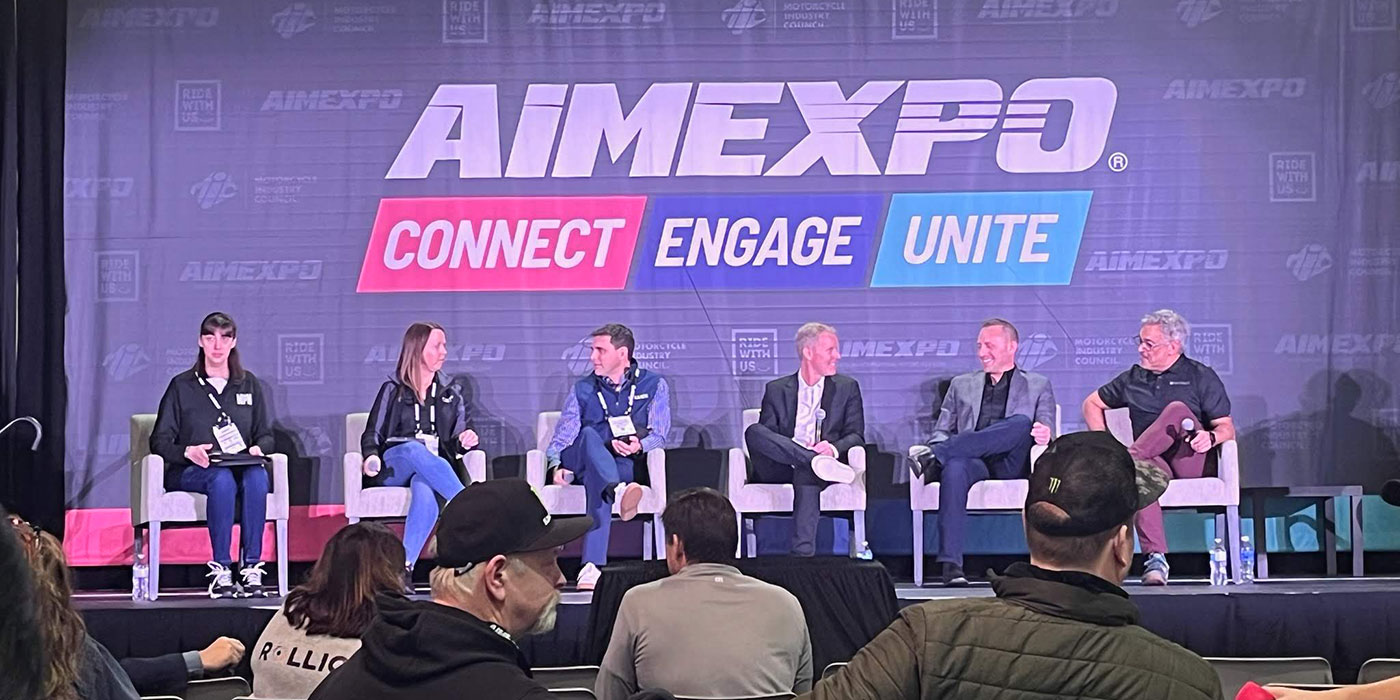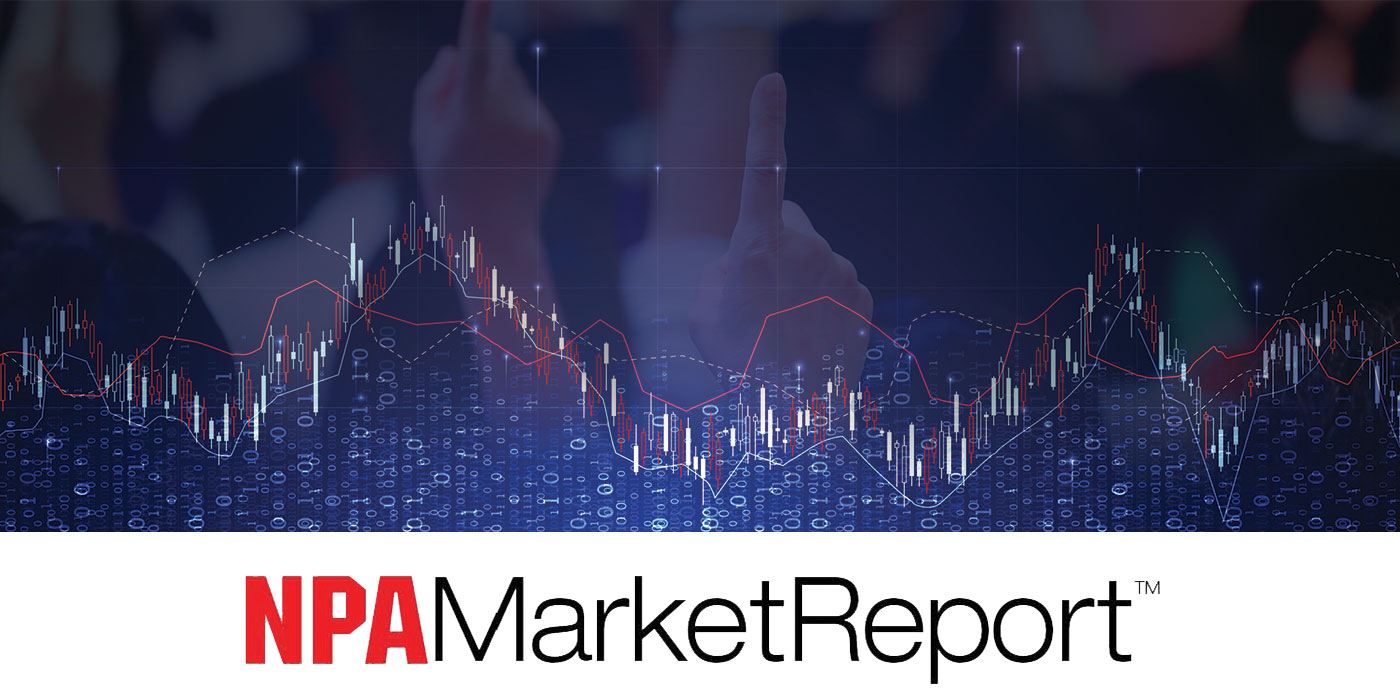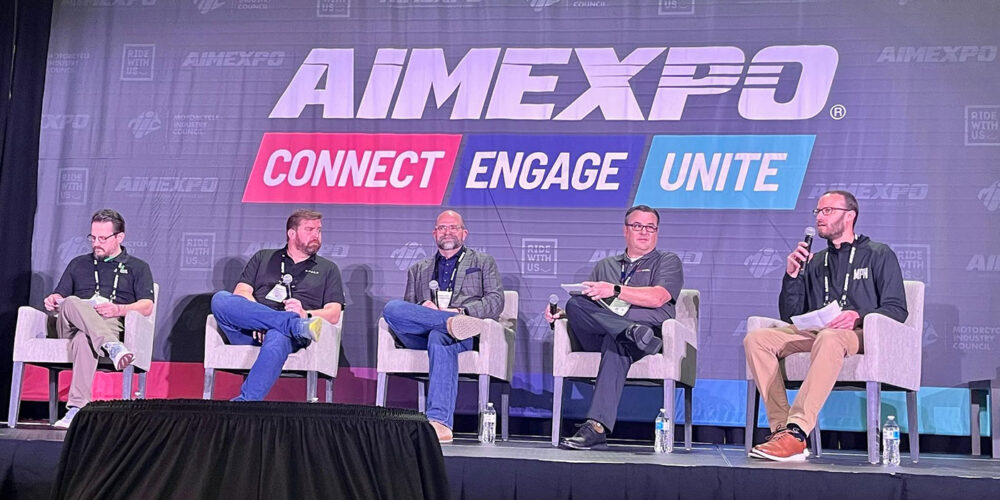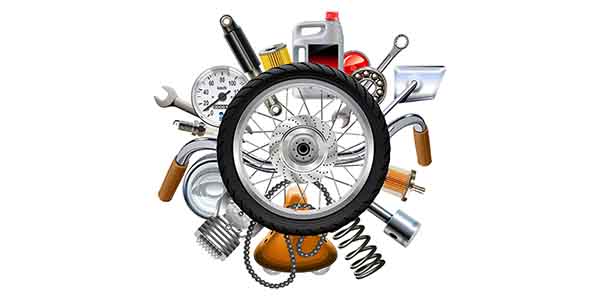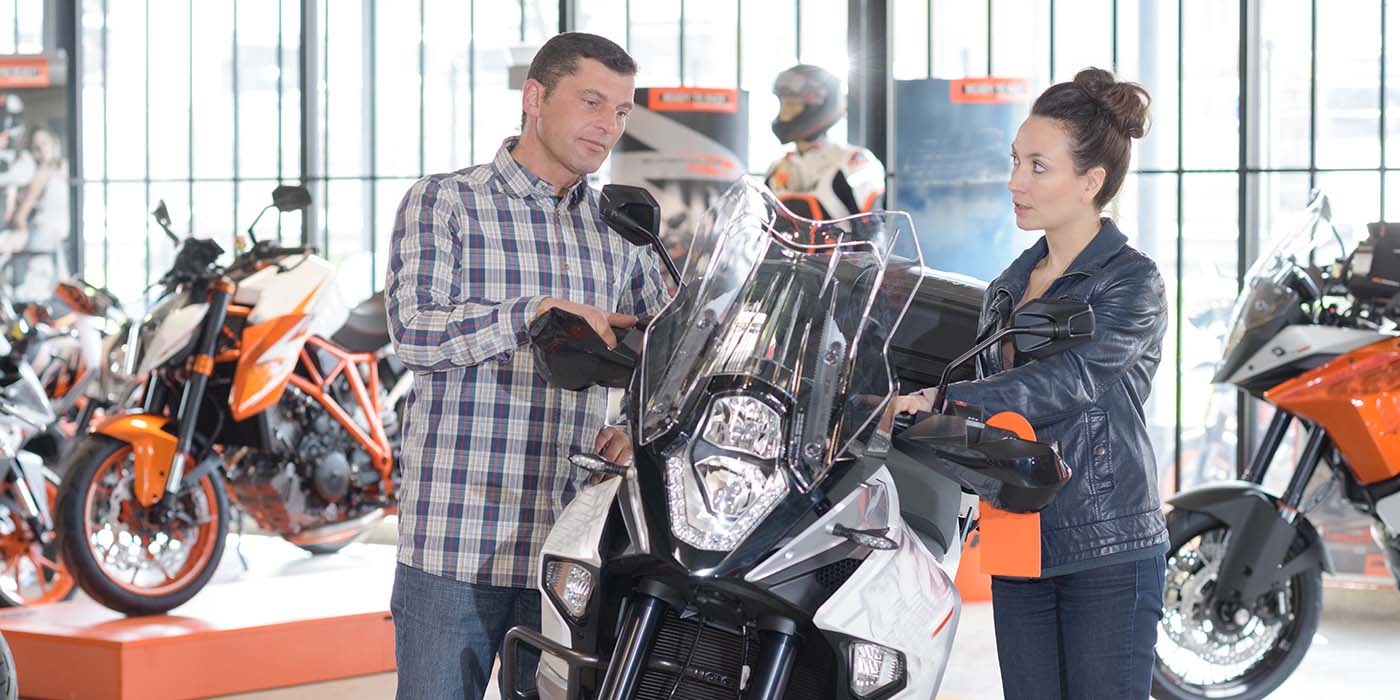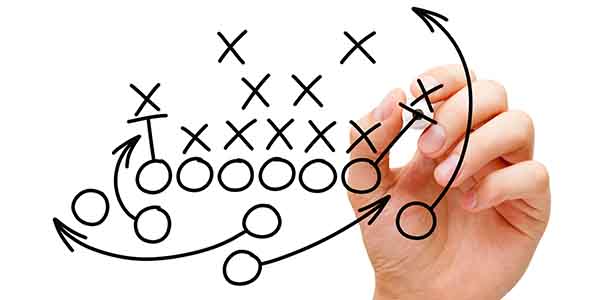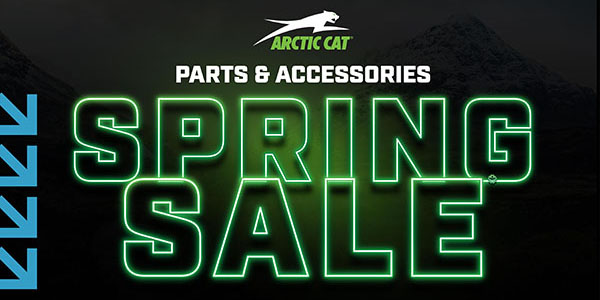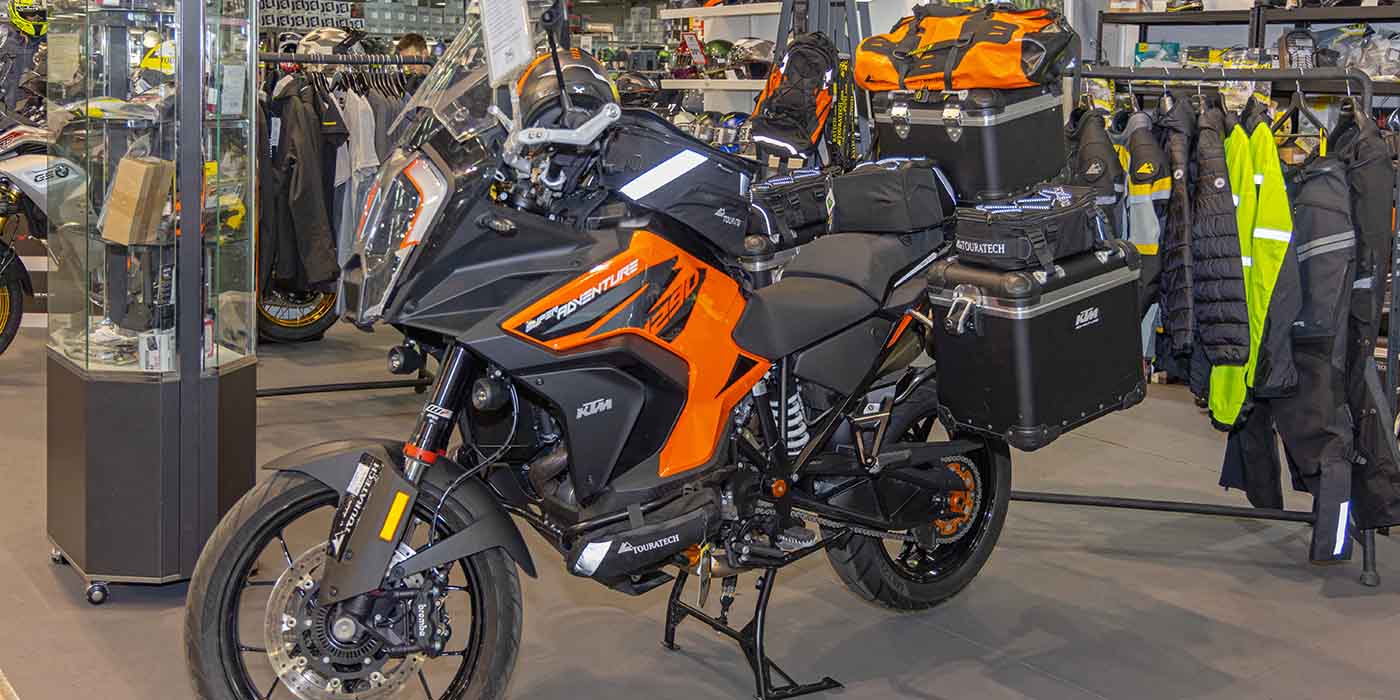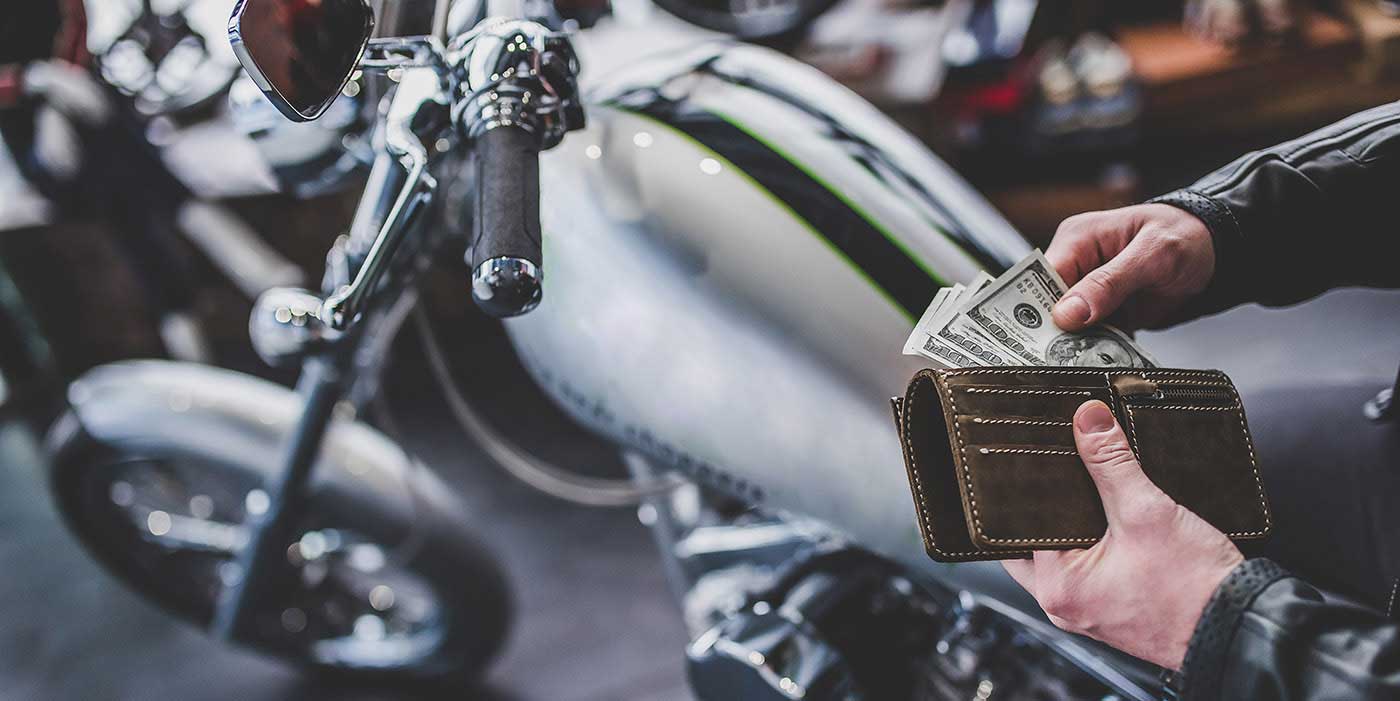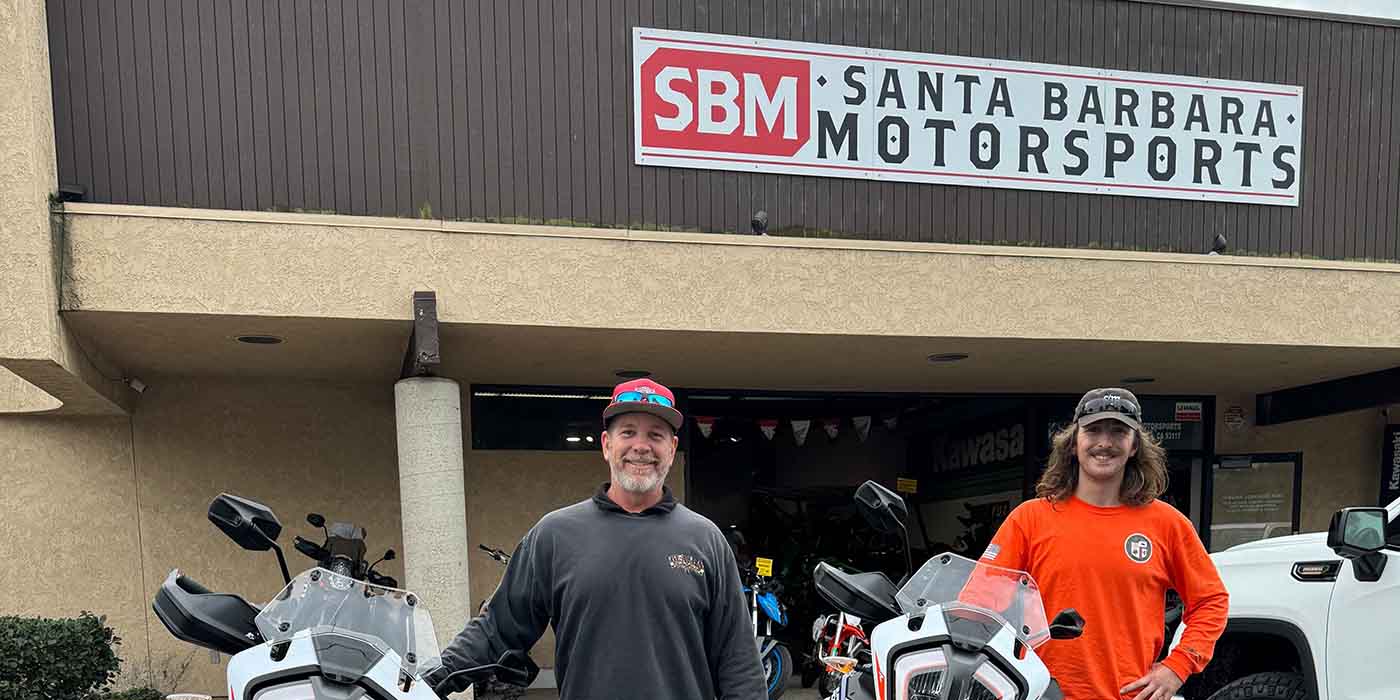Few entrepreneurs start a business thinking it will persist for half a century. Far more pressing are concerns of production, sales and simply paying the bills. When Nancy and Perry Sands started Performance Machine in Paramount, CA, in 1970, they fit the latter category. Perry said, “Once you grab a tiger by the tail, there’s no option.”
His words imply that the motorcycle parts company, now 50 years old, was pushed along by circumstance. But anyone who knows Perry, knows otherwise. “My dad is so damn intelligent, so calm in approach,” said his daughter, Summer Sands Hoover, CFO at Roland Sands Design. “When I worked at PM, I thought every company president was like that.” Indeed, Perry’s reputation is of a quiet, dedicated man, with remarkable instincts and timing; prone to action, not words.
The action that started it all was a ride at nine years of age on a Triumph owned by a friend of his dad’s. After that, Perry’s dad brought home a basket case 250 dirt bike that soon overtook the youngster’s free time and imagination. Younger brother Ted, Perry’s “chief wrench getter,” remembered the maiden voyage, “I pushed him down the driveway, then it started and took off with him. He hadn’t hooked up the throttle or brakes yet and was grabbing for the spark plug!”
By the late ‘60s, Perry was working at a machine shop and wrenching on his own bikes, lusting after a Springer front end. “AEE had them and I couldn’t afford one, but I knew I could make one,” he said. Once he succeeded then sold one to friend, he was in the parts business. “I told Nancy’s parents, ‘I don’t have time to go to work. I have to make motorcycle parts!’” So, in 1970, he sold his pickup and bought a lathe and welder.
Nancy said, “Both our parents had faith in us — and I had faith in Perry.”
Perry called his business Chopper Spring Glide Machine after his first production product. His friend, Dave Hetland, who was helping out in the early days, suggested changing it to Performance Machine.
“The early chopper business was pretty fun,” Perry said. Only a few companies tended to chopper riders then: Gary Bang, Hallcraft, Santee. Ever the forward thinker, Perry figured that with bigger engines and bigger tires, the long bikes needed better brakes, too. So, he developed a brake kit to fit a drum brake hub, effectively turning it into a disk brake. “Making Harleys stop better propelled our business,” he said.
Meanwhile, Nancy juggled home and work. Summer recalled learning math by sorting cancelled checks as her mom balanced the company account. Nancy’s input grew with time. She established a part number system, then a catalog had to be done. Eventually, they needed an HR manager, so she did that, too. “You develop the skills you need,” she said. Added Perry, “She built an excellent crew.”
Over time, PM’s Paramount location spread out to four buildings and family was always part of the picture. Son Roland, owner and founder of Roland Sands Design, designed his first wheel at age 14. He began racing at 15; of course, PM sponsored him. How did Nancy handle having a daredevil in the family? “There were times I just couldn’t watch! I’d tell Perry, ‘Tell me when it’s over.’” She had cause for concern: he broke over 30 bones.
For Roland, it was better than working at the shop. “I had lost my license at 16, so that made my junior year a b*tch. I had to take a 20-mile bus ride from school in Long Beach. At 2:40 p.m., it was straight to work with my dad until seven or eight. It wasn’t all that fun, but I wasn’t exactly trustworthy at the time.” The upside? “I was learning how things are done, sketching and designing — and I got to accomplish some of my dreams while I was still a kid.”
“I was less prone to trouble” said Summer, who started at PM in the summers then worked her way up through the admin side, developing skills that serve her well now at RSD. “I so wanted the receptionist job when I was 16, but my mom said my voice was too young.”
When brother Ted came on in the early ‘90s to expand distribution and handle sales and marketing, notoriety in the press and the company’s reach increased. “We got to Cincinnati for the V-Twin Show one year and there were four magazines that had Roland and me in them,” Perry said.
Going to shows and rallies was always important. “We’d recognize the needs and interests, then come back and design new parts to put into production,” Perry said. He’s been credited with an uncanny sense of reading market trends. He remembered, “Nancy and I would sit at the corner on Main Street during Sturgis and count the stock bikes — bikes that needed better brakes, our brakes. We just needed to reach them. That’s where the magazines became important, they totally supported us.”
Ted became the face of PM. Perry, who always preferred to stay in the background, regarded it as a blessing. According to Ted, “Perry’s a man of few words — or should I say ‘choice words.’ He spoke out on things he felt strongly about.”
Ted’s gregarious nature paved the way for PM’s growth. During his 23-year tenure, (he retired in 2016) both domestic and overseas sales of PM products exploded. It was Ted who brought David Zemla, now VP of marketing for S&S Cycle, to PM’s marketing department.
“When I came in the late ‘90s, the fuse had been lit on the resurgence of the market and digital marketing was in its infancy,” Zemla said. “They had the URL but hadn’t used it — they were really open to new ideas.”
By 1997, having outgrown Paramount, PM had moved to new digs in La Palma. One day in the early 2000s, Zemla remarked, “Perry rolled in and said ‘We’re going to build wide wheels for Softails — the whole kit!’ That market didn’t even exist in U.S. at the time. I mean, you had to throw away the whole rear end of the bike — and buy a matching front wheel and disc brakes! But Perry had this crazy sense of the future and that product did really amazing.”
“At one point I had another [job] opportunity and told Perry I was going to take it. Perry said, ‘No.’ Just no. That’s not what you expect when you tell your boss you’re leaving.” So, Zemla stayed on.
Quality has always been a PM hallmark. The PM focus was to excel, to be innovative, to be the best. When CNC processes were still state-of-the-art, Perry knew it was the way to go. “I always had a tendency to go big,” he said, in classic understatement.
And the stance on unquestioned quality was by intent, from the beginning. “Early on, I had a bike accident that was caused by making a mistake related to the brakes and suspension,” Perry said. He broke his wrist, but it could have been much worse. “It made a lasting impression about what can happen if you don’t do things right, if you don’t think ahead. So, I decided to stress test my products well past their normal use.”
Perry developed a complete in-house testing program that began at the design phase. “We’d prove out our analysis on a prototype long before a product got to production,” he said.
That lesson wasn’t lost on Roland and Summer. “He had high standards and he held me to them,” Roland said. “We constantly butted heads. He could be difficult. But one thing our family could always do was have it out over the work issues, there wasn’t the typical ego. It wasn’t about any of us being right, it was about the right thing to do for the company.”
“My parents were incredible business partners,” Summer said. “The business found a balance between them. I’m proud not just of what they did but how they did it. Roland and I talk often about how much we learned from them, what a great resource they are for us still.”
“Nancy was the perfect balance to Perry – the accountant and the dreamer,” Zemla added.
Perry and Nancy sold the business in 2005 to MAG. Since being fully retired, they’ve packed their home in Idaho with dirt bikes, rhinos and snowmobiles. Perry’s regular rider is a BMW K1600 GTL. He likes it so well he bought a K1600 bagger to keep in the SoCal garage. They still own Perry’s PM 30th anniversary chopper and he and Roland are building a 1947 Indian Chief based on a frame Perry owned decades ago that recently came back to him.
“When I’m at shows for RSD, it’s amazing how many people ask about my parents,” Summer added. “And it’s a testament to how many lives they touched through PM, how they’re still respected.”
Link: Performance Machine

